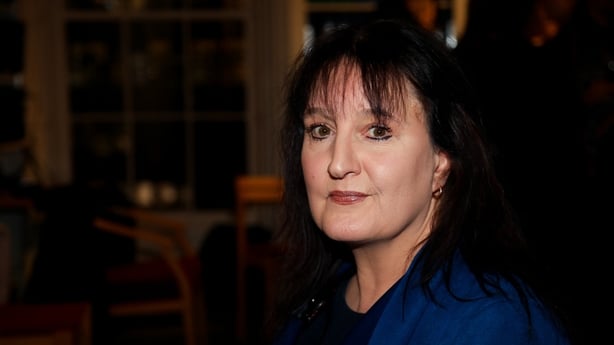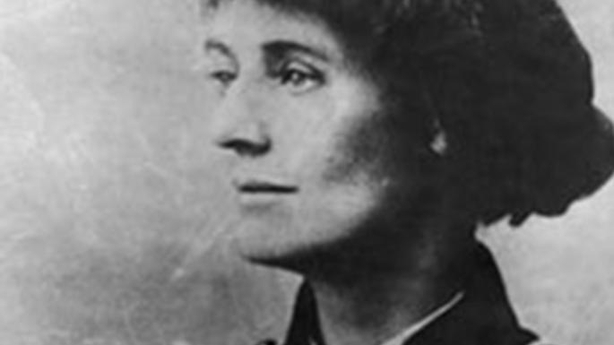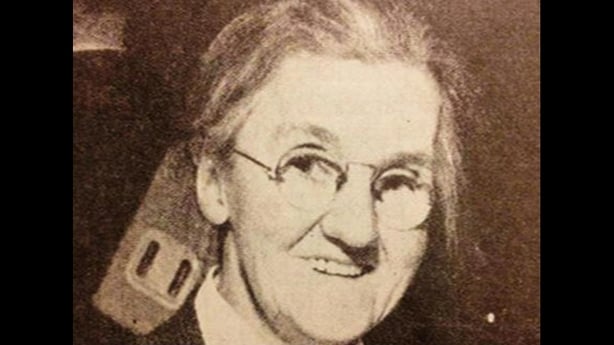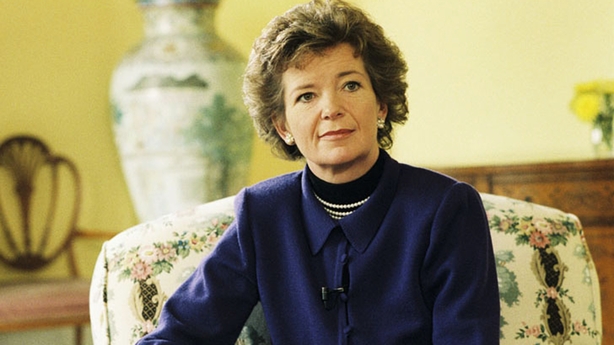Irish soprano Elizabeth Hilliard will be performing Gráinne Mulvey's work for voice and electronics Great Women alongside other works at Richmond Barracks this April, as part of a solo recital for this year's New Music Dublin Festival. Elizabeth introduces the programme below...
I am very excited to make my debut solo recital at New Music Dublin this year.
As a 16-year old teenager, I first heard Berio Sequenza No 3 for voice. I was completely bowled over by it, such an array of sounds which seemed to paint themselves into my brain. My teacher at the time, the late Anne Leahy (TU Dublin Conservatoire) told me that it was designed to explore all the sounds a woman makes, from laughing to sighing to singing to talking.
To experience this music was so fascinating for me - I wanted everyone to hear this piece. I even brought a recording into my fifth year English class on the day we were invited to bring in some artwork to discuss.
We need your consent to load this rte-player contentWe use rte-player to manage extra content that can set cookies on your device and collect data about your activity. Please review their details and accept them to load the content.Manage Preferences
Listen: Soprano Elizabeth Hilliard talks to Culture File
Just over 25 years later, and I am still passionate about music that uses sound in some way to capture the human experience. I am so fortunate to work with many composers who invite me to explore the wealth of sound that my voice can make. As a woman, I am often requested to moderate my tone, to hold my emotions in reserve. I love the possibilities, the expansiveness, the playfulness offered to me by my adventures in music performance.
For my concert in Richmond Barracks on the 20th April, I have chosen three works: Refuse to be wrecked by Ailís Ní Ríain, Adiantum Capillus Veneris (I) by Chaya Czernowin and Great Women by Gráinne Mulvey. To me, each of these works portrays the quality of strength in some way.
The character in Ailís's work is fighting to stand up for her place in the world, for her very existence. Adiantum Capillus Veneris translates as the maidenhair fern, that plant that can survive hidden in the cracks between rocks. Czernowin portrays a mysterious, mystical environment in sound, by focussing on the breath and the fragility of the voice, time seems to stop still for the listener as you are drawn into this ethereal world of beauty and fragility. As humans living in this world, we deal with challenges all the time. We can never truly know what is going on inside someone else's existence. For me, the power and magic of music is the ability to in some way share that inner existence. Being able to render thoughts and feelings in sound and presence.

The final work on my programme, Gráinne Mulvey’s Great Women, is receiving its live premiere. I have been collaborating with Gráinne for over a decade and this is one of our most ambitious works together, bringing together some amazing figures from Ireland’s history including Constance Markievicz and Rosie Hackett, with Ireland's former Presidents Mary Robinson and Mary McAleese.

Countess Markievicz’s story links to the Dublin lock-out, a major industrial dispute between approximately 20,000 workers and 300 employers which took place in Dublin, between 1913 and 1914. It is often viewed as the most severe and significant industrial dispute in Irish history. Countess Markievicz was one of the women who set up soup kitchens to feed the strikers during the dispute. This led to her political involvement with Larkin and Connolly and her crucial role in the 1916 Easter Rising, which was instrumental in shaping the political landscape for all women afterwards. Markievicz wanted women to be self-determining and gain equal rights. Despite the fact that she was incarcerated for most of her life, she was the first ever female minister in a government in the 1920’s.

A contemporary of Markievicz, Rosie Hackett was a fearless Trade Unionist who fought for workers’ rights selflessly, and who was regarded highly by workers. Hackett’s text used Great Women shares the determination of women to contribute to society and to be treated as an equal in all matters. The statement content is also extremely powerful as it shares events in the lead up to the 1916 Rising that affected the course of events that followed.

The piece then shifts to later in the century, focussing on text from the inaugural Presidential speeches of Mary Robinson and Mary McAleese. This is to highlight the development of the role of women in Ireland and politics. There is a segue to the voices and events of the early 20th century in that Mary Robinson came to power in 1990, when the Good Friday agreement was being brokered by politicians and activists on both sides. She speaks about the fifth Province, this opening our minds to change, peace and reconciliation—the beginning of a new era.

Mary McAleese was the second female President of Ireland who served from 1997 to 2011. Her words echo how Ireland is entering a new stage in its development, highlighting peace, reconciliation, plurality and confidence. The work Great Women in the end ultimately represents a new and liberal era, where all women alongside men are able to vote for equality for all people, abortion rights and our right for inclusion.
The mood of the textures of the opening of the piece reference earlier history, noise based, menacing as in the noises that are heard in factories and reflect the stark, bleak and dangerous era. Gráinne deliberately creates a flood of voices that emerge at the end of Markievicz’s reading to represent the unheard voices of all the women that were silenced, oppressed, discriminated, incarcerated, abused for centuries, who then came out and spoke without fear.
New Music Dublin have collaborated with the Dublin International Chamber Music Festival (who commissioned Great Women) to present this programme at Richmond Barracks in partnership with Dublin City Council Culture Company. Richmond Barracks is an ideal venue for the programme, because of its association with the Easter Rising. After the Irish surrendered, both Hackett and Markievicz were taken here for processing by the British, alongside three thousand other men and women.
Almost all the sounds of the text recordings are treated in the manner of musique concrète (with just a very few "atmospheric" field recordings added), while the live parts use many extended vocal techniques including overtone singing, fragmentation of text and vocalise.
The aim is to integrate the recorded sounds and live voice into a single continuum, reflecting the shared vision, aspiration and above all the struggle of generations of Irish women through the last century.
Elizabeth Hilliard will be performing Great Women at Richmond Barracks, Thursday 20th April at 4.30 pm as part of the New Music Dublin Festival - find out more here.

